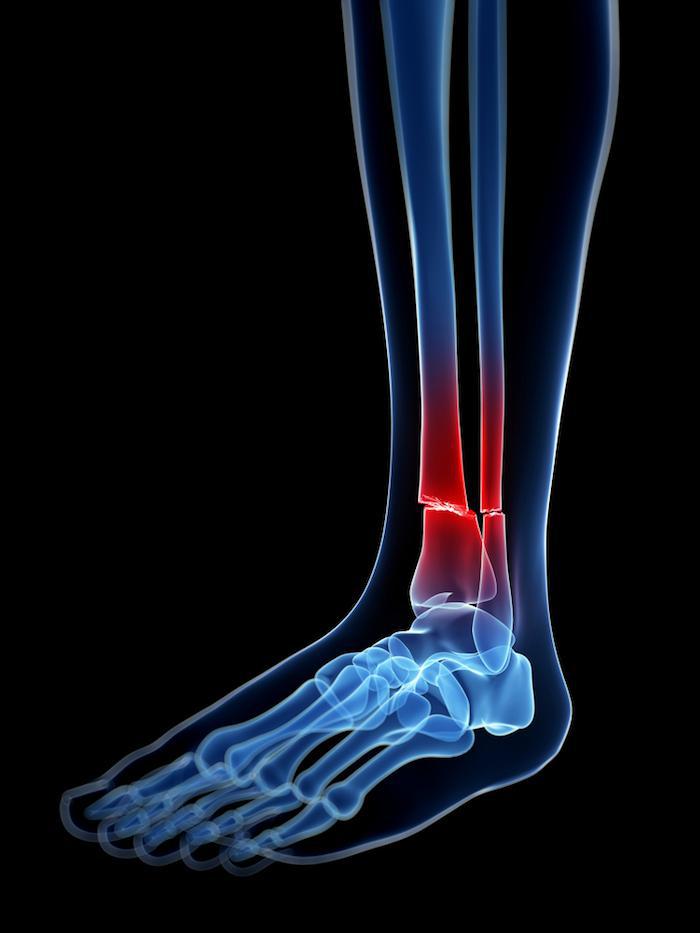Fracture Management in Faridabad
Fractures, commonly known as broken bones, are injuries that can occur in various parts of the body, often as a result of accidents or trauma. Effective fracture management is crucial to ensure proper healing and the restoration of function.

- Assessment and Diagnosis:
The first step in fracture management is a thorough assessment and diagnosis. A healthcare professional, typically an orthopedic specialist, will examine the patient, often using X-rays or other imaging techniques to determine the type and location of the fracture.
- Immobilization:
Many fractures require immobilization to allow the bones to heal properly. This is usually achieved using casts, splints, or braces, which stabilize the fractured area and prevent further movement.
- Reduction:
In some cases, the fractured bone needs to be realigned. This process is called reduction. There are two types: closed reduction, where the bone is repositioned without surgery, and open reduction, which involves surgical realignment and the use of hardware like screws or plates.
- Pain Management:
Fractures can be painful, and pain management is a crucial aspect of treatment. Over-the-counter or prescription pain medications may be prescribed to help manage discomfort.
- Surgery:
Certain fractures, such as complex or displaced ones, may require surgical intervention. Surgeons may use pins, plates, screws, or rods to stabilize the bone and promote healing
- Rehabilitation:
Following immobilization or surgery, rehabilitation is a critical phase of fracture management. Physical therapy helps restore joint mobility, muscle strength, and overall function. It also aids in reducing stiffness and preventing complications.
- Weight-Bearing and Activity Progression:
The gradual return to weight-bearing and normal activities is determined by the fracture’s location, type, and the patient’s progress. Healthcare providers provide guidance on when it’s safe to resume daily activities and exercises.
- Monitoring and Follow-Up:
Regular follow-up appointments are essential to monitor the healing progress. X-rays may be taken to ensure the fracture is mending correctly.
- Complications:
Complications in fracture management can include malunion (improper healing), nonunion (failure to heal), infection, and nerve or blood vessel damage. Timely intervention and proper care help reduce the risk of these complications.
Fracture management is a comprehensive process that involves various medical specialties and a coordinated effort to ensure that fractures heal properly and patients regain their quality of life. Every fracture case is unique, and treatment plans are tailored to the individual’s specific needs and circumstances.
The correct diagnosis and expert medical intervention for fractures must occur to achieve healing along with the recovery of patient mobility. Dr. Naman Goel is a fracture specialist in Faridabad who offers surgical and non-surgical treatments for simple and complex fractures. His medical approach leads patients toward faster healing with minimized pain while creating proper bone positions, which help maintain successful joint operations over extended periods.
Types of Fractures Treated
- Simple (Closed) Fractures: A simple bone break occurs in which the bone fragment remains inside the body without breaking through the skin surface.
- Compound (Open) Fractures: The bones need surgery because they tear out of the skin.
- Stress Fractures: Repetitive stress, together with overuse activity, creates small cracks in the bone.
- Comminuted Fractures: Surgical bone fixation is a necessity when multiple shattering bone pieces result from the fracture.
- Greenstick Fractures: Partial bone fractures in children result from bending movements that cause bone curvature but no complete separation.
Fracture Treatment Options
- Casting & Splinting: Minor fractures benefit from non-surgical immobilization since this method allows healing to occur naturally.
- Closed Reduction: A fracture surgeon in Faridabad guides bone realignment procedures that require subsequent casting.
- External Fixation: Physicians secure severe fractures by attaching pins and rods to the body outside of it.
- Internal Fixation (Plates, Screws, Rods): The Bone fracture specialist doctor in Faridabad uses surgical implants to stabilize complicated fractures during treatment.
- Minimally Invasive Surgery: Small incisions with faster recovery and reduced complications.
Why Choose Expert Fracture Management?
- Accurate Diagnosis: X-ray, CT, and MRI scans at the fracture clinic in Faridabad provide doctors with detailed images needed to diagnose fractures correctly.
- Faster Healing: Correct stabilization techniques both speed up bone restoration while simultaneously decreasing procedure-related problems.
- Personalized Treatment Plans: The treatment aligns with the specific characteristics of patients’ fractures and their lifestyle requirements.
- Early Mobilization: Quick rehabilitation recovery happens after implementing physiotherapy sessions with treatment plans.
Fracture Pain Management
The different causes of fracture pain include damage to the bones and inflammation, together with muscle spasms and irritated nerves. The pain from bone fracture treatment in Faridabad can be controlled through over-the-counter medication and prescribed medication. In severe cases, advanced treatments are used to overcome this pain.
Schedule Your Appointment Today!
Patients seeking the best fracture treatment should not leave this opportunity. You can have your treatment at the bone fracture hospital in Faridabad with Dr Naman Goel who is an orthopedic surgeon for fractures in Faridabad. You can book your appointment by calling us today at +91 8851510002 or +91 9910340578.
